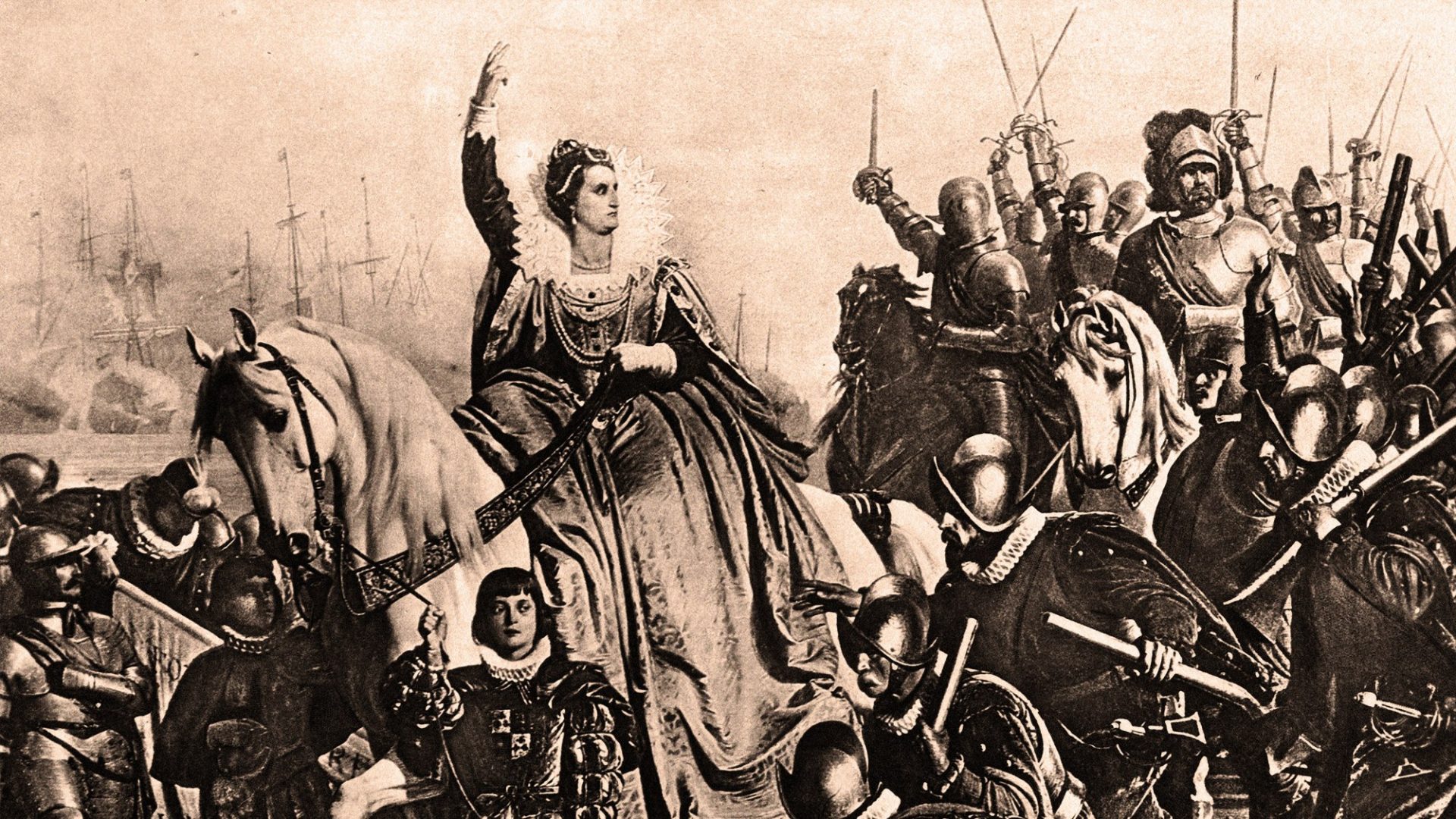According to the Encyclopaedia Britannica, the average adult male has about 50% more upper-body strength than the average adult female, and about 30% more lower-body strength.
So when Queen Elizabeth I, in her famous speech at Tilbury in 1588, supposedly declared in connection with the arrival of the Spanish Armada that “I know I have but the body of a weak and feeble woman; but I have the heart and stomach of a king, and of a king of England too”, she was not wrong to point to human sexual dimorphism when it comes to matters of physical strength. Women, including monarchs, do generally have less muscle power than men.
Eleven days before her speech, the Armada had been driven away from the Strait of Dover at the Battle of Grevelingen (Gravelines in French), and had then rounded Scotland on its way home, but English troops were still being kept at the ready in Essex as a precaution.
One puzzle for linguistics scholars in connection with this speech is that Elizabeth chose to use the phrase “weak and feeble” – surely the two words mean the same thing. Why did she use the two adjectives when one would have been enough?
I am no student of literary stylistics or of rhetoric, so am not qualified to answer that question in those terms, but I do have something to contribute from a linguistic point of view about why Her Majesty actually had a choice of two adjectives with roughly the same meaning to select from.
It is often pointed out to students of the history of the English language that English has enriched its lexicon by borrowing words from very many other languages in such a way as to produce clusters of synonyms and near synonyms. The most famous example, often cited in textbooks, is probably the trio of words consisting of kingly, royal and regal. The first of these, of course, derives from king, which was originally a Germanic word related to Dutch koning, German König and Danish konge. Royal was borrowed from French, and regal is derived from classical Latin regalis “of or belonging to a king or queen”.
In the phrase used by Queen Elizabeth I, feeble was originally a French word, and it has actually been borrowed into English twice: first as the noun foible signifying “a weakness”, which came directly from an identical form in Early Modern French; and second as the adjective feeble, from Modern French faible “weak”. (I have written before – see TNE January 21, 2021 – about how, similarly, metal and mettle, and flour and flower, were originally the same words.)
Weak, on the other hand, is a word of Germanic origin. But, strangely, it did not enter Modern English directly as a survival from our Germanic ancestral language Anglo-Saxon, but rather as a borrowing from the early Scandinavian tongue of the Vikings and their Nordic precursors – the Old Icelandic form was veikr. It is not obvious why this word ended up replacing the original Old English adjective wāc, which would have become woke in Modern English if it had survived, rather than falling out of use in English during the 1500s.
Armada
In Britain we associate the word armada with the Spanish Armada and the planned Iberian invasion of England in 1588. Linguistically, armada was originally the feminine singular form of the past participle of the Spanish verb armar “to arm”, referring to an armed fleet of warships. In the same way, our word army was originally borrowed from the past participle of the French verb armer “to arm”, which was armée.




